
O deão Swift conhecia o Portugal pós-moderno saído das infaustas eleições de "não-sei-quantos" que nos puseram no estado social, cultural e político em que em nos encontramos hoje?
Se conhecia (ou se foi capaz de prever) qualquer dessas calamidades civilizacionais a que temos o extaordinário costume de chamar "políticos", não sei; agora que tem todo o ar disso, ai, isso tem!...
Se conhecia (ou se foi capaz de prever) qualquer dessas calamidades civilizacionais a que temos o extaordinário costume de chamar "políticos", não sei; agora que tem todo o ar disso, ai, isso tem!...
Senão, vejamos os seguintes excertos da terceira parte de "Gulliver's Travels" onde se evocam (e se satirizam convenientemente...) os brilhantes "iluminados" que, pelos vistos, em toda a parte e em todos os tempos se dedicam (se me é permitida a---humildemente o reconheço ---extrema vulgaridade da imagética...) "baixam periodicamente as calções" (expondo e activando, assim, de passo, a única parte do corpo com que são capazes de simular o acto ou actos de pensar...) para emitirem os brilhantes "juízos teóricos sobre a realidade" com que se empenham em martitirizar sociedades inteiras a eles por desgraça (melhor dizendo: por exclusivo efeito da imensa, insondável ignorância destas) submetidas:
"I had hitherto seen only one side of the academy, the other being appropriated to the advancers of speculative learning, of whom I shall say something when I have mentioned one illustrious person more, who is called (...) the universal artist. He told us he had been thirty years employing his thoughts for the improvement of human life. He had two large rooms full of wonderful curiosities, and fifty men at work. Some were condensing air into a dry tangible substance, by extracting the nitre, and softening marble for pillows and pin-cushions; others, petrifying the hoofs of a living horse to preserve them from foundering. The artist himself was at that time busy upon two great designs; the first, to sow land with chaff, wherein he affirmed the true seminal virtue to be contained, as he demonstrated by several experiments which I was not skilful enough to comprehend. The other was, by a certain composition of gums, minerals, and vegetables otwardly applied, to prevent the growth of wool upon two lambs; and he hoped in a reasonable time to propagate the breed of naked sheep all over the kingdom."
Com umas quantas (pequeníssimas) alterações de circunstância possuiremos, por exemplo, uma imagem espantosamente nítida de um certo tipo de "inteligente" ou mesmo "génio de carreira" que continua, hoje-por-hoje, imperturbável, indiferente a revoluções e democracias, a infestar os nossos iluminados ministérios---a começar por esse espantoso mártir da mediocridade dos políticos que é o da (chamada) Educação.
...da chamada "Educação" onde aparentemente pilhas e pilhas destes "especialistas em bizarrias e swifteanas inanidades" de todo o género conspiram afanosamente para tornar a Educação impossível e ensinar um luxo que não podemos de todo permitir-nos...
..................................................................................
Já agora, para completar este ponto da "Antologia" que aqui me proponho reunir ("agora" quer dizer: nestes estranhos tempos de neo-liBERAlismo "social" que todos os dias "deita alegremente fora" um lote inteiro de "professores usados", isto é, dos poucos que ainda vão sabendo "qualquer coisinha"); já agora, dizia, porque não completar, então, este ponto da "Antologia" com esta eloquente descrição do "professor rodrigueano tipo", o único apto a suportar a selvajaria epistemológica e profissional característica destes neo-modernos tempos de pós-História e trans-política...
"The first professor I saw was in a very large room, with forty pupils about him. After salutation, observing me to look earnestly upon a frame, which took up the greatest part of both the length and the breadth of the room, he said perhaps I might wonder to see him employed in a project for improving speculative knoeledge by practical and mechanical operations. But the world would soon be sensible to its usefulness, and he flattered himself that a more noble exalted thought never sprang in any other man's head. Every one knew how laborious the usual method is of attaining to arts and sciences; whereas by his contrivance the most ignorant person at a reasonable charge, and a little bodily labour, may write books ion philosophy, poetry, politics, law, mathematics, and theology, without the least assistance from genius or study. He the led me to the frame, about the sides whereof all his pupils stood in ranks. It was twenty foot square, placed in the middle of the room. The superficies was composed of several bits of wood, about the bigness of a die, but some larger than others. They were all linked together by slender wires. These bits of wood were covered on every square with paper pasted on them, and on these papers were written all the words of their language, in their several moods, tenses, and declensions, but without any order. the professor then desired me to observe, for he was going to set his engine at work. The pupils at his command took each of them hold of an iron handle, whereof there were forty fixed round the edges of the frame, and giving them a sudden turn, the whle disposition of the words was entirely changed. He then commanded six and thirty of the lads to read the several lines softly as they appeared upon the frame; and where they found three ou four words together that might be part of a sentence, they dictated to the four remaining boys who were scribes. This work was repeated three or four times, and at every turn the engine was so contrived that the words shifted into new places, as the square bits of wood moved upside down.
Six hours a day the young students were employed in this labour, and the professor shoed me several volumes in large folio already collected, of broken sentences, which he intended to piece together, and out of those rich materials to give the world a complete body of all arts and sciences; which, however, might still be improved, and much expedited, if the public would raise a fund for making and employing five hundred such frames in Lagado, and oblige the managers to contribute in common their several collections."
O acaso é, de facto, o grande mestre dos mediocres?
A mediocridade, a inteligência dos ineptos e dos social e politicamente--dos historicamente---inúteis?
Com certeza mas já nem sequer isso tem o mérito da novidade: Swift já o havia descoberto há três ou quatro séculos por tantos lugares por quantos andou.
De Lagado a Laputa.
"And back again"...

Jonathan Swift
!["«'Suciedade'» de consumo» («Manifesto visual») [Colagem sobre papel de Carlos Machado Acabado]"](http://3.bp.blogspot.com/_pn72A09QL5c/SqdmxRSQCzI/AAAAAAAACyA/GUCnyjm8P74/S220/Copy+of+Elogio+do+Saber+e+da+Poesia.jpg)




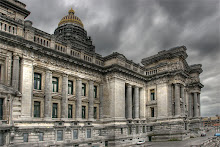
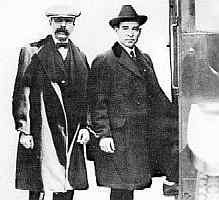
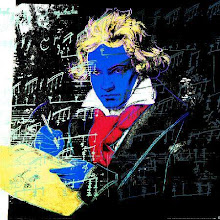

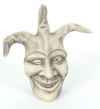
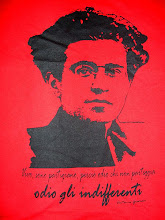



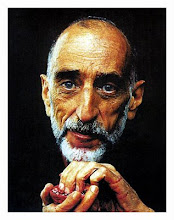
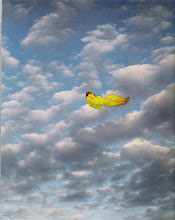

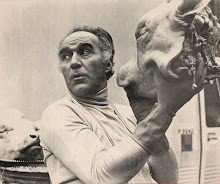

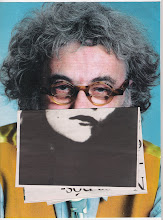
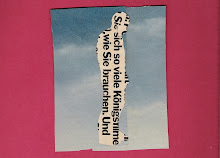

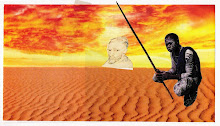
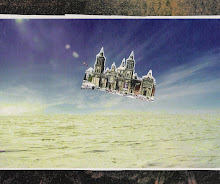
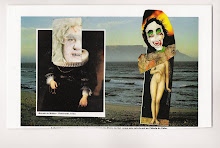





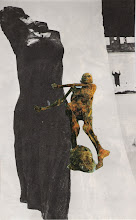


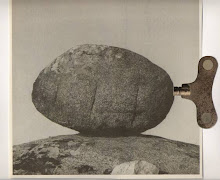
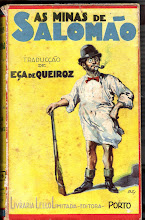



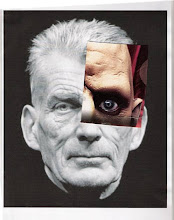
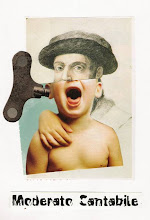
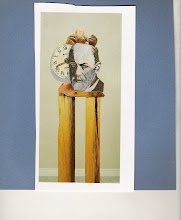




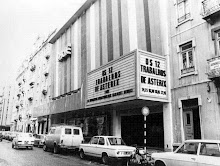
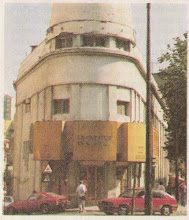
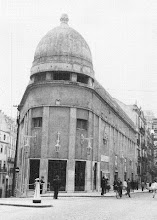
Sem comentários:
Enviar um comentário